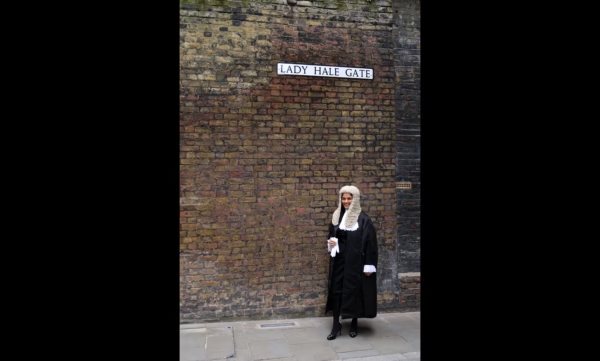
Introduction
Welcome to the June and July 2019 edition of the Property Newsletter from Hardwicke.
As temperatures rise and the pound falls, thoughts lead us, naturally, to holidays and memories yet to be cherished. But before all or those of us who are lucky enough to do so disappear, or staycate, if that is a verb, in this month’s newsletter we focus on planning. Hardwicke’s Martha Grekos proposes that gentrification does not have to be a dirty word and improving housing does not always have to end with gentrification. Emily Betts spins the Wheel of Questions.
The newsletter will be back in September (hopefully having recovered from the sunburn and sangria by then).
Carl Brewin – Editor
Activity Report – What we have been up to
This month Andy Creer has been advising on rent review provisions, considering s.18 valuations and drafting the Statements of Case in various Code matters.
Jamal Demachkie spent much of the last month enjoying the sights of Lake Bled in Slovenia, but found time to argue about stays of execution in the High Court, advised on a prospective appeal to the Court of Appeal on breach of restrictive covenants, and spent two and half days arguing about amendments to a Particulars of Claim.
Daniel Gatty has had a month of interim injunction applications – both applying and responding. The rest of his time has been spent on the usual mix of advisory work (including about a particularly interesting dilapidations point if that isn’t an oxymoron) and drafting, with a bit of mediating thrown in.
James Hall has had a busy year so far, mainly involving professional negligence (of others!), and is looking forward to his upcoming Balearic holiday.
Rupert Higgins has been advising on the validity of some break notices (someone’s got to do it)!
The last month has been a heady mix of advising on complex mortgage and residential possession claims and a stream of TOLATA for Katrina Mather.
Monty Palfrey has had a busy couple of months culminating with a contested 54 Act renewal against Kirk Reynolds QC (of the book fame) over what constitutes a “high class supermarket”. Otherwise pubs, boundaries and possession.
Brie’s June has been a funny mix. Some good solid real property disputes, a boundary dispute going back to the 1990s and adverse possession going back to the 1980s. She is also working on rectifying rent review provisions in a commercial lease. However, her highlight of the month was modelling her proposed new court attire at Pride.
Cameron Stocks had a June full of residential property matters ranging from interpretation of 10 years’ worth of notices to increase rent to assessing damages for breach of repairing covenants in a shared ownership lease. Cameron is looking forward to some Spanish sunshine in July once he makes it through drafting a summary judgment application in a misrepresentation claim and an advice for disrepair in a Kensington property.
Laura Tweedy has been working hard to finalise all of her work before starting maternity leave with her second baby at the end of July.
John de Waal QC has been working on options and overage.



Carl Brewin: Did you see? You may have missed…
The Facts
In EI Group Plc v In & Out Developments Ltd, John Joseph Burke, and Barrington Burke (A Bankrupt) [2019] EWHC 1887 (QB) the Court refused a stay of execution of a possession order against the tenant of a pub pending the tenant’s application for permission to appeal.
From 2015 disputes arose between the parties regarding rent arrears and other breaches of covenant, and forfeiture proceedings were brought based on those breaches. A mediation took place in 2017, which led to a consent order in the form of a Tomlin order providing for relief from forfeiture if certain conditions were satisfied. While there was express agreement that the tenant would comply with all its obligations in the lease, the schedule in the Tomlin order did not require compliance with all obligations as a condition of relief. Once the agreed conditions were met, they were to be embodied in a deed of variation and the lease would be re-instated.
One of the conditions was that the tenant needed to provide details of two guarantors who would also be directors at the date of the deed of variation. While two proposed directors were considered acceptable by the landlord in August 2017 further disputes arose on amounts owed and the tenant’s compliance with other obligations.
The landlord therefore did not progress the deed of variation and issued possession proceedings on the grounds that the tenant was in breach of the consent order. A possession order was made. HHJ Monty QC heard the substantive application in the County Court at Central London to set it aside. He found that there had been non-compliance with the condition relating to guarantors as both the guarantors named in the deed were not directors of the tenant at the date of the deed of variation. He dismissed the tenant’s argument that the landlord had waived that requirement. The tenant sought permission to appeal against the order on the issue of waiver and was granted a temporary seven day stay of the order.
The tenant argued that it would be substantially prejudiced if it could not remain at the pub until the appeal was determined as its business would be at risk and jobs would be lost. The landlord argued that it would be prejudiced if a stay was granted, that the employees would be protected by Transfer of Undertakings (Protection of Employment) Regulations 1981, and there would only be a short period of closure.
The decision
Mr Justice Kerr accepted that there was evidence of a risk of prejudice to both sides if the stay was granted or refused. There was an inevitable risk to the goodwill of a business and jobs where the possession of a premises changed hands. Accordingly, the Court could consider the merits of the proposed appeal to assess where the balance of justice should lie. As to the merits, they were weak. The waiver issue had been argued before HHJ Monty QC and there was no strength in the tenant’s point that the Judge was bound to accept that the guarantor requirement had been waived. Justice therefore required the stay to be discontinued.
The court was not impressed by D1’s point that the waiver issue came before the judge in an oblique way. It had been aired in argument and D1 had had an opportunity to address it. The fact was that the proposed guarantors were not directors of D1 at the date of the deed of variation. There was no real force in D1’s argument that the judge had been bound to accept that the guarantor requirement had been waived. The merits of the proposed appeal were very weak. The balanced arguments on prejudice taken with the weakness of the grounds of appeal meant that justice required the stay to be discontinued.
Jamal Demachkie appeared for the successful landlord (Carl Brewin and Monty Palfrey also appearing at earlier stages of the proceedings).
“Hardwicke Unrobed” - Get to know us better
Each month, a member of our property team has to spin ‘the Wheel of Questions’ and answer the first three questions that come up. This month, Emily Betts tried her luck with the wheel.
Q: What was your first job?
A: On the tills in a local garden centre. I wish I could say I picked up lots of horticultural knowledge but the job only really required me to know the difference between when to use the ‘bedding plant’ button and the ‘trees and shrubs’ button. On the up side they sold Lindt chocolate bunnies at Easter and we got to eat the ones that broke. You don’t get that in Chambers…
Q: At what job would you be terrible?
A: I already know this. I got fired from being a barista when I was a student. I think mainly because I never mastered the frothy leaf pattern on the cappuccino. Fortunately the coffee machines in the conference rooms are a little easier…
Q: What’s the first concert you attended?
A: The earliest I can remember is Reading Festival 2000, I was on my friend’s shoulders for Oasis playing Wonderwall. Completely amazing.
Want to try yourself?
Contact us
If you would like to discuss any of the topics in this newsletter, please contact a member of our Practice Management Team: